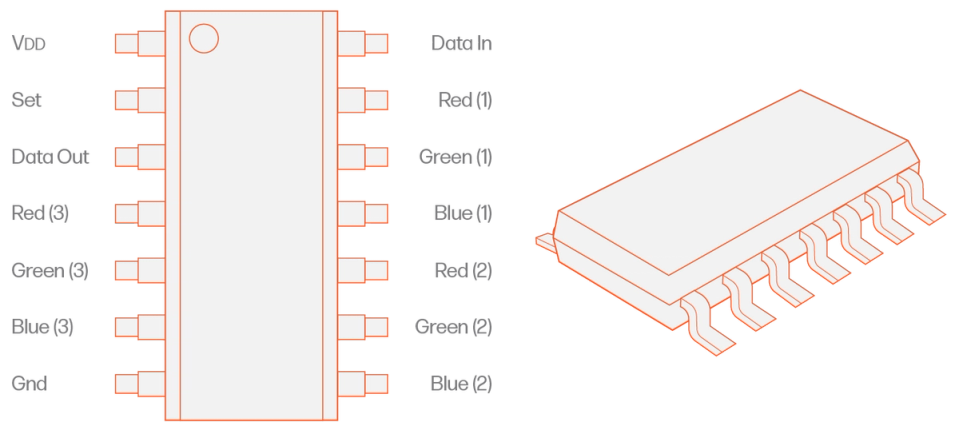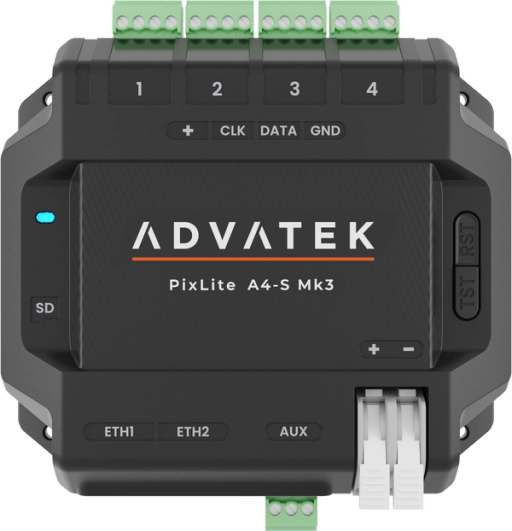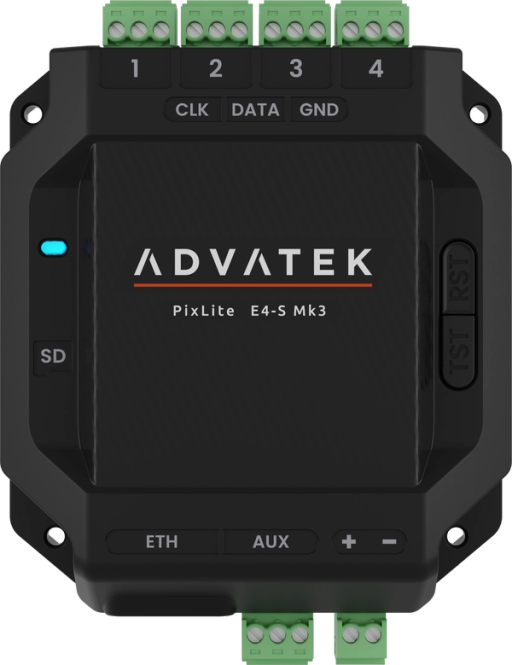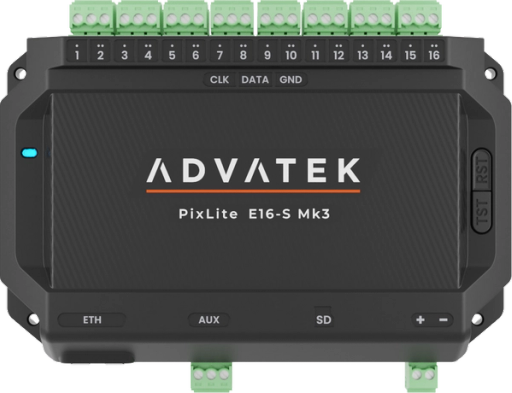Overview
This pixel protocol was designed by Titan Micro Electronics in China. TM1809 is equipped with all the same features as its previous version, TM1803, but supports 3 RGB pixels off the one chip. The control circuit comes in a SOP14 package, allowing for more flexibility with LED choice.

TM1809 pixel protocol
Specifications
PixLite Mk1 | |
PixLite Mk2 | |
PixLite Mk3 | |
Clock Type | Data-Only |
Color Resolution | 8 Bits |
Current Control | |
Physical Package | SOP14 |
RGB | |
RBGW | |
Input Voltage | 5V |
Output Pixel Voltage | 5 - 24V |
PWM Rate | 400Hz |
Suitable Camera | Unsuitable for cameras |
Data Transfer Rate | 400 - 800kbps |
Redundant Data Line |
Considerations for Use
Advantages
- Up to 24V, allowing for very long cable lengths
- Drives 3 pixels off a single SOP14 chip.
Disadvantages
- Low PWM rate makes theses pixels unsuitable for cameras
- Data-only restricts refresh rates to be limited by the speed of the protocol, which can be slow
- Only 8 bits of data for each color makes dimming curves less smooth
- No redundancy in data
Need Help with Your Next Project?
PixLite Support
Are you looking for TM1809 pixel drivers that work with Art-Net or sACN?
All PixLite Mk1, Mk2, and Mk3 products support TM1809 as an available Pixel IC type, so get in touch with us to find out how the lighting specialists at Advatek can support you in your pixel lighting project.

PixLite® A4-S Mk3
Driving up to 24 universes of data, and offering easy mounting, sleek design and electrical fault protection — what’s not to love?

PixLite® E4-S Mk3
The E-series LED pixel controller is made for tighter budgets thanks to its ability to drive up to 24 universes of LED pixel control and route power directly to LEDs.

